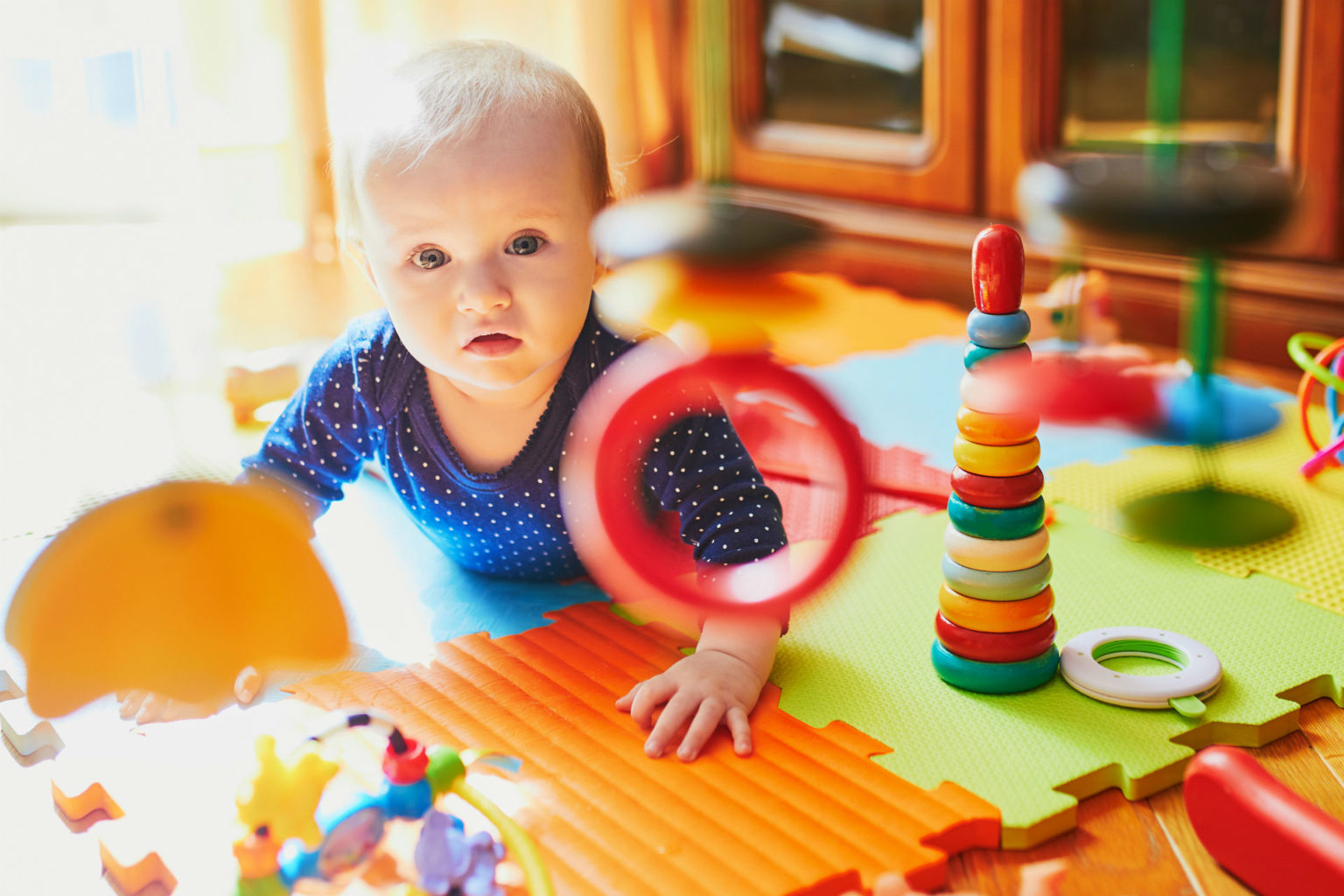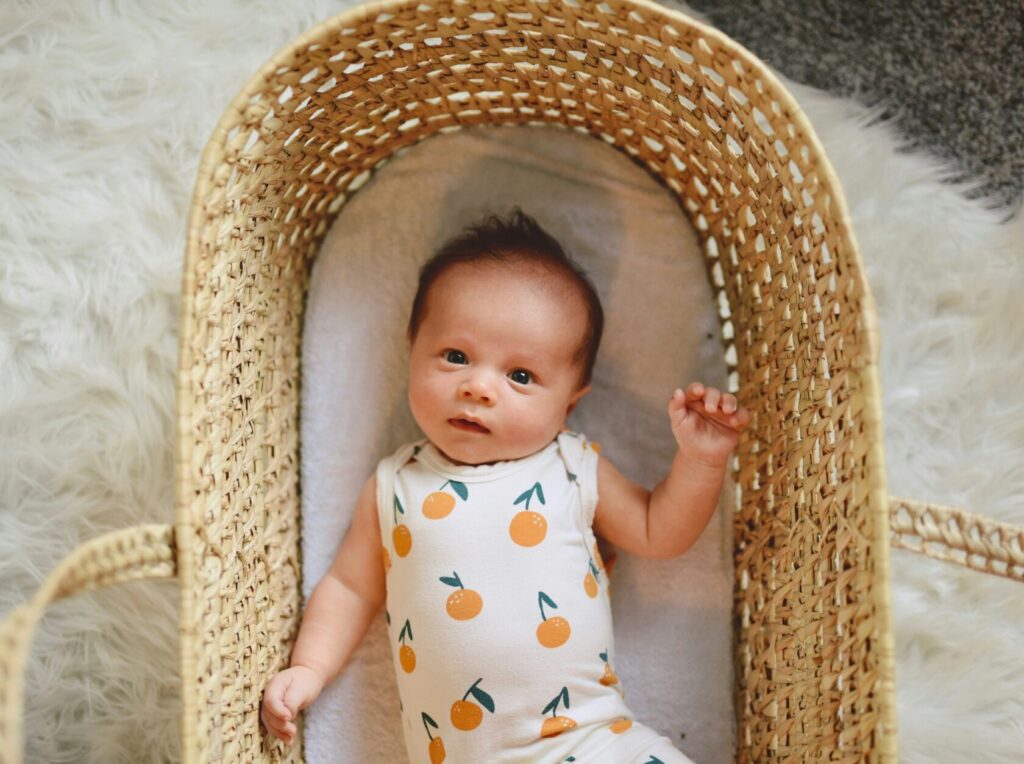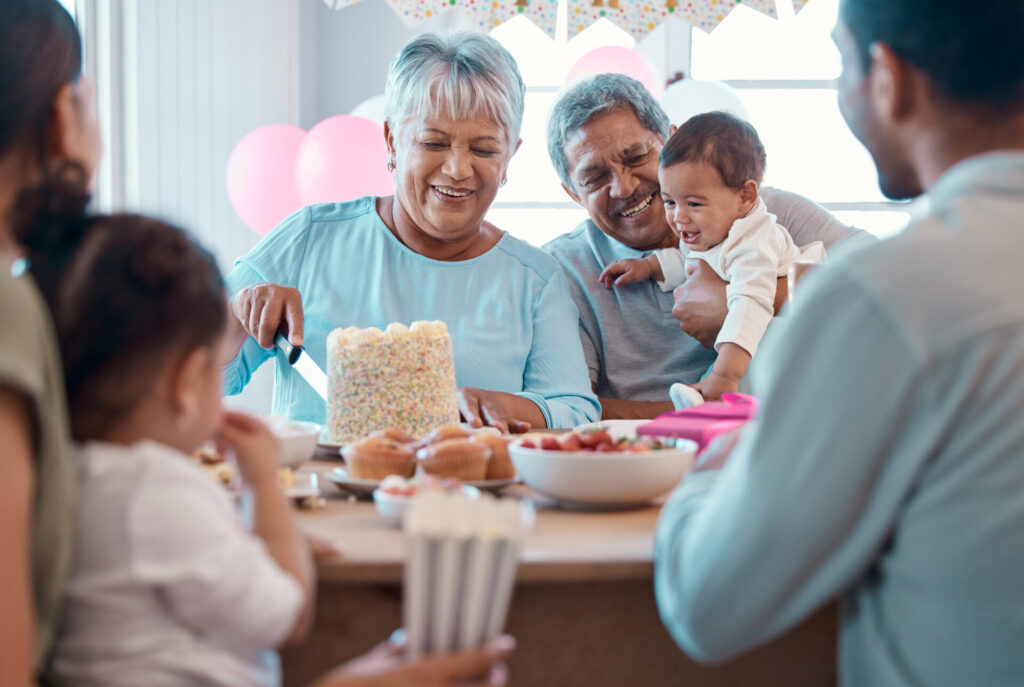You've probably heard how important it is to help your baby's brain develop well. You may have seen advertisements for toys to stimulate your child's brain, and CD's to ggive your unborn baby a start in music.
Many parents know it is important to help stimulate their child's brain, but they are not sure why.
While some of the claims are exaggerated, there is good scientific evidence that it is important to stimulate your child's brain development early in life.
What We Know About Early Brain Development
The brain starts to develop long before your baby is born, and it continues to develop quickly through the early years (0 to 6). This early development of the brain affects health and well-being throughout your child's life.
How well a baby's brain develops during the earliest years sets the foundation for growth and development later in life including adulthood.
Wiring & Sculpting The Brain
Each baby is born with a central nervous system, made up of the brain and the spinal cord. The central nervous system has 100 billion nerve cells, called neurons. The neurons can make up to 15,000 connections with each other, which form very complex pathways in the brain. These pathways allow the neurons to communicate with each other to control the body's muscles, organs, and glands.
In newborn babies, most of these connections between neurons have not yet happened. But during the first year of a baby's life, these brain pathways start to be built very quickly. As these pathways are built, the brain begins to strengthen the pathways it uses often and eliminates pathways it doesn't use. This process is known as brain wiring or sculpting.
Although brain sculpting begins before birth and continues into the teenage years, it is most active in the early years of life. That's why its so important to provide your baby with stimulation. More than one-third of the neurons a baby is born with are eliminated in the first three years of life.
Nature & Nurture
This brain development is determined by the interaction between two powerful forces: nature and nurture.
Nature is the qualities and genetic possibilities a baby is born with. These are determined by genes, which babies get from their parents. For example, a child gets brown hair or musical talent through his (or her) genes. Nurture is the love and care that adults give to a child.
Nature and nurture work together to shape a child's developing brain. The love and care you give your child makes a big difference in his early brain development.
Stimulating Young Minds To Learn
Babies are very sensitive to their environment the physical surroundings and the people around them. This is why your child's early months are so important.
The way you respond to your children, especially in their earliest years, affects how the pathways in their brains are formed. Early pathways set a base for thinking skills and learning. Different parts of a baby's brain develop at different times. This means that there are special times when the brain is most able to absorb certain experiences, and special times when the brain is most able to build up new pathways. To make this process work, a child needs to interact with his parents or other adults.
Coping With Emotions
Children begin to learn to cope with their emotions early in life. Babies start to be able to comfort themselves as early as six months. They start to learn what makes them happy and what doesn't.
Later on, babies begin to learn how to control their behaviour, and to decide where to focus their attention. A strong emotional bond with at least one caring adult is needed for this important learning.
Learning To Speak
The ability to learn language is very strong in early childhood. By listening to sounds and copying them, most children learn to talk between 12 and 18 months. All children are naturally ready to learn to talk, but the language they learn depends on what they hear around them.
During the babbling phase, babies make lots of sounds. After they have learned their native language, they are less able to make sounds that are not used in their language. Babies need to hear language long before they learn to talk. Speak to your baby when you are nursing, feeding, changing diapers and cuddling. Lots of touching and talking stimulates the brain's pathways for using and understanding language.
Thinking Skills
Thinking skills help children build up new knowledge. Using symbols, understanding numbers, following a story, and understanding where physical objects are in relationship to each other (spatial awareness) are concepts that form the basis of abilities to think and to reason later on. All these concepts can develop during the years before school.
You can help your children's thinking skills by providing lots of different experiences and helping them understand these experiences. For example, a walk to the park to find different kinds of bugs is a stronger learning experience if you help point out the differences between ants and ladybugs.
Make-Believe Play (Pretending)
Make-believe play (pretending) begins about the time that children start using language and walking around. Children may dress up or use props to act out their world. Pretend play helps children practise new thinking skills that help with learning to read and solving problems in the early school years.
Learning To Count
At about age four, children usually know how to count. They also understand ideas such as more and less, and big and small. But they don't know that seven is greater than five. Children usually begin to understand number and quantity between the ages of four and six. Between the ages of six and 10, children develop a better understanding of how numbers work.
They start to understand the concept of space at around age six, when they put together their ideas of how objects look with the relationships between them. For example, they might draw pictures of a tree connected to the ground with the sky above it and a person beside it. Some of the most important learning in a child's life happens long before he gets to school.
Love Protects Against Stress
Like all animals, our bodies are genetically programmed to react to stress to get away from danger or to fight danger. Within minutes of something stressful happening, the brain releases stress hormones which help a person cope. If we live with constant stress for a long time, however, some neurons in the brain die.
Over time, constant stress can affect the whole body. Thats because stress suppresses or weakens the immune system, which protects a person against disease. People with high levels of stress tend to get sick more often. Babies and young children are very sensitive to stress. Research has shown that babies who feel secure and who get enough care and stimulation can deal with stress better. This is why good, loving care for your baby can help throughout his life for coping well and for good health.
Giving your children care and stimulation in the early years helps them develop in a healthy way. Most parents want to hold and cuddle their children, talk to them, and give them toys and other things to play with. This does more than make children smile. It builds their capacity to learn and cope emotionally with life. It also helps them develop their ability to think and make sense of their worlds. Early Brain Development – A Foundation For Life
Children's early experiences make a big difference in their lives. Good care in the first few years of life helps children develop physically, emotionally and intellectually. Like a good solid foundation for a house, early brain development is a foundation for your child's health, well-being, behaviour and learning.
Healthy brain development in the early years lasts a lifetime.
Originally published in March 2007. Image by iStockphoto.









